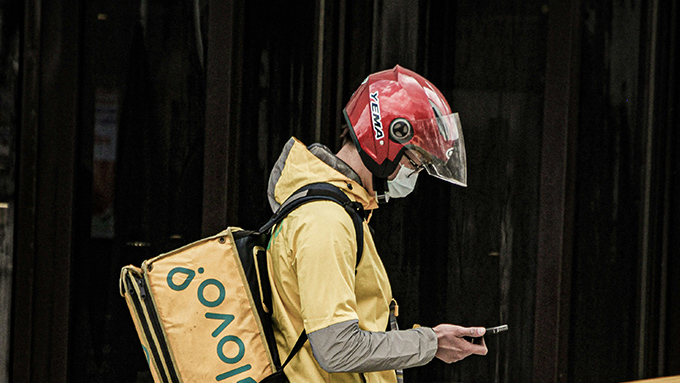A Different Approach to Monetary Fines for Hindering On-Site Inspection: The Decision of the Ankara II. Administrative Court
Introduction
While the scope of Competition Board’s (“Board”) power to conduct on-site inspections has increased with the introduction of Guidelines on Examination of Digital Data during On-site Inspections (“Guidelines”), nowadays the amount of monetary fines imposed on undertakings continue to increase due to deletion of digital data by the undertakings' employees. As a matter of fact the total amount of administrative fines imposed by the Board on undertakings has increased 47 times from 2020 to 2021 on the grounds for hindering or complicating on-site inspections.[1]
As the digitalization improves although the deleted data can be recovered by forensic information devices or access to the data by other means is possible, it is observed in various Board decisions that even the mere deletion of data contained in a digital media, including the private mobile devices of the employees’, is considered to be hindering or complicating the on-site inspection.
Notwithstanding that the examination of personal mobile devices is seen as an outcome of the digitalization by the Board, the decision of Ankara II. Administrative Court[2] is significant in terms of setting the limits to the Board's power to conduct on-site inspections and substantiating the action for hindering on-site inspections.
Legal Background
The power of the Board to conduct on-site inspections which lays the groundwork for pre-investigations and full-fledged investigations by way of competition violation findings, is regulated under Article 15 of Law No. 4054 on the Protection of Competition (“Law No. 4054”). With the amendment introduced by the Guidelines, the Board is granted with the power to examine and duplicate the documents retrieved in any digital media that contains information on the undertaking. In various decisions of the Board, the Board’s power to examine the personal mobile devices of the undertaking’s employees is attributed to the said provision.
Notwithstanding that the on-site inspections must be carried out announced by nature, there are multitude of decisions where the Board imposed administrative fines in the amount of five per thousand of the annual revenues of the undertakings as per Article 16 of the Law No 4054, even in the event that some information on the personal mobile phones of the employees is deleted in affreightment during a “raid” inspection.
Board’s Decision on Hinderin On-Site Inspection
Within the scope of the investigation carried out by the Board regarding the labor market, it is determined that some of the correspondences on Whatsapp application were deleted on two mobile devices obtained from the company’s officials, during the on-site inspection carried out at the headquarters of Sahibinden Bilgi Teknolojileri Pazarlama ve Ticaret A.Ş.’nin (“Sahibinden”). As a result of the technical examinations, it is determined that the data has been deleted on the mobile device in the posession of a company official, but upon the understanding that the deletion process did not occur on the day of the inspection, it is considered that the deletion process did not constitute the act of hindering the on-site inspection. However, it is also concluded that the other company official whose mobile device was also obtained, deleted the correspondences contained in the Whatsapp groups named "HRBP" and "with HRBP" by way of using "Clear the Chat" function and the Board concluded that the deletion process took place after the on-site investigation was initiated. The correspondences deleted by the company official was accessed from the mobile device of another company official. However, the Board still imposed an administrative fine on the undertaking on the grounds for hindering and complicating the access to evidence and findings, that may be obtained by experts during the on-site inspection.
Evaluation by Ankara II. Administrative Court
In the lawsuit filed for the annulment of the aforementioned Board decision, the court accepted that the power of the Board to conduct on-site inspection should be used abruptly and fast without informing the undertakings, but also concluded that the Board should rely on concrete information and documents while making the decision for an administrative sanction. In this respect, the court emphasized in its decision that the action requiring a fine by the Board should be set forth with all its elements.
It is important to note that while the court considered that deletion took place after the initiation of the on-site investigation, the court positevely took into consideration that the undertaking informed its employees in order not to delete any record and they warned about handing over any required documents to the experts by way of sending an e-mail message as “The Competition Authority Experts will conduct an on-site investigation today, during the working hours. In this regard we kindly ask you not to delete messages on your e-mail and mobile phone”. In its decision the court concluded that the act does not constitute a basis for an administrative fine, taking into account that the correspondences deleted by the company’s official was accessed from another employee’s mobile device and the deleted correspondances were not related to the undertaking. Notwithstanding that no concrete information or documentation was obtained regarding undertaking’s act of obscuring evidence, the court issued a stay of execution order as the administrative fine of the Board will cause irrecoverable or irreparable damage to the plaintiff company.
Conclusion
It is observed in practice and in judicial decisions that adminstrative sanctions are frequently imposed on undertakings on the grounds for delaying the on-site investigation and preventing experts from accessing to potential evidence, even if all kinds of deletions on mobile devices of the employees’ during the on-site inspeciton are recovered by forensic information tools. It is evaluated by the Board that even if the information deleted is accesed through other means, this will not have an impact over hindering/complicating the on-site inspection.The Board accepts that if the deleted data cannot be detected by forensic methods, this will be rewarding for undertakings.[3]
The power of the Board to conduct on-site inspecions is one of the most significant tools in determining whether if there is any violation of the Law No. 4054. However, in accordance with the principles of proportionality and legal certainty, the aforementioned decision differs from previous judicial decisions, in terms of the Board's obligation to base its actions on concrete information and documents and to take the least severe measure possible in order to achieve the legitimate goal.
Although the decision of the Ankara II. Administrative Court can still be appealed before the District Administrative Court, the said decision is important in terms of setting the limits to the power of the Board to conduct on-site inspections.
- Competition Board’s Annual Report of 2021 pg. 66, See: https://www.rekabet.gov.tr/Dosya/faaliyet-raporlari/faaliyetraporu2021-20220425160848388-pdf (Access date: 19.07.2022)
- Decision of the Ankara II. Administrative Court, No. E.2022/254, 15.04.2022.
- “Medicana” Decision of the Board, No. 21-31/400-202, 17.06.2021.
All rights of this article are reserved. This article may not be used, reproduced, copied, published, distributed, or otherwise disseminated without quotation or Erdem & Erdem Law Firm's written consent. Any content created without citing the resource or Erdem & Erdem Law Firm’s written consent is regularly tracked, and legal action will be taken in case of violation.
Other Contents

The U.S. District Court for the District of Columbia (“Court”) issued its memorandum opinion (Memorandum Opinion) on November 18, 2025, in the antitrust case (“Case”) between the Federal Trade Commission (“FTC”) and Meta Platforms Inc. (“Meta”). The FTC alleges that Meta monopolized the market…

No-poach agreements, which have become one of the most prominent concepts in global competition law in recent years, are defined in the Glossary of Competition Terms as “agreements, whether direct or indirect, whereby one undertaking agrees not to make job offers to, or hire, the employees of another...

The Competition Board (“Board”) has broad powers to request information from undertakings. The legal basis for this authority is provided by Article 14 of Law No. 4054 on the Protection of Competition (“Law No. 4054”). Under this provision, the Board may request any information it deems necessary from public...

Competition authorities around the world have increasingly focused on labor market infringements under competition law, issuing new regulations and guidance recently. Notable examples include the U.S. Department of Justice and Federal Trade Commission’s joint guidance, the Japanese Fair Trade Commission’s...

Chapter 8 of the General Data Protection Regulation (“GDPR”) sets out the legal remedies available to data subjects in the event of a breach of their rights under the GDPR. Accordingly, each data subject has a right to lodge a complaint with the supervisory authority of the Member State in which they reside, work...

Mergers and acquisitions play a critical role in shaping the competitive structure of the market. Although such transactions can lead to positive outcomes such as the provision of products and services at lower prices, the development of new products and technologies, and improvements in quality, they may also...

Technology and the opportunities it brings undoubtedly play a key role in strengthening the competitiveness of market players. In this context, pricing algorithms that enable undertakings to monitor publicly available prices and optimize their own pricing strategies have become widely used, especially by digital platforms...

The Regulation on Fines to Apply in Cases of Agreements, Concerted Practices and Decisions Restricting Competition, and Abuse of Dominant Position (“Former Regulation on Fines”), which entered into force upon its publication in the Official Gazette dated February 15, 2009 and numbered 27142, was...

In the past years, the Turkish Competition Board (“Board”) has closely monitored the activities of undertakings operating in the retail sector. As a result of the Board’s record of administrative fines, horizontal type of violations in the retail sector have been highly publicized. Vertical violations such as resale price...

In recent years, numerous automobile manufacturers have announced their goals to reduce carbon emissions, with many brands setting net-zero carbon targets spanning from production processes to the lifecycle of their vehicles. While ongoing debates persist regarding the significantly higher carbon footprint of...

Under Article 15 of Law No. 4054 on the Protection of Competition (“Law No. 4054”), the Competition Board (“Board”) may conduct on-site inspections at the undertakings’ premises when it deems necessary in fulfilling the duties assigned to it. During the on-site inspection, the Board is authorized to examine all...

Agreements and information exchanges between undertakings in labor markets have recently been examined in various preliminary investigations and investigations initiated by the Turkish Competition Authority (“Authority”). Following the investigations in which some undertakings were subject to...

The Turkish Competition Board’s (Board) decision regarding the acquisition of the international road transport business line of Ekol Lojistik AŞ (Ekol) by DFDS A/S (DFDS) has been one of the most prominent transactions on the competition law agenda recently...

The Competition Board (“Board”) has broad powers to request information from undertakings. The Board’s authority to request information arises from Article 14 of the Law No. 4054 on the Protection of Competition (“Law No. 4054”). Under the relevant provision, the Board may request any information it deems...

Doğuş Otomotiv Servis ve Ticaret A.Ş. (Doğuş) applied to the Turkish Competition Authority for an exemption for the practice of recommending basic wages to be applied to sales and after-sales service employees of its authorized dealers and distributors...

Access to Instagram was blocked ex officio by the Information and Communication Technologies Authority (ICTA) as of 2.08.2024. Under Article 8 of Law No. 5651 on the Regulation of Publications on the Internet and Combating Crimes Committed Through These Publications, ICTA can issue an ex officio access...

It is well known that agreements between employer undertakings with regards to their employees, such as wage-fixing and non-poaching agreements, along with competitively sensitive information exchanges have been under the scrutiny of competition authorities all over the world, including the Turkish Competition...

Automotive is one of the sectors in which the world’s most significant investments are made. The Competition Board (“Board”) has been closely interested in the automotive sector over the years and has conducted various examinations and studies in this field...

Competition authorities around the world continue unabated to investigate competition concerns arising from data collection and processing activities of digital platforms and impose severe sanctions as a result...





The startup ecosystem in Turkey has experienced notable growth in recent years. In the last quarter of 2023, 81 startups secured a combined investment of around 60 million dollars. While the number of investments remained consistent when comparing the third quarter periods of 2022-2023, there was a decrease...

Hub and Spoke cartel is a type of violation that is not clearly defined and regulated under Law No. 4054 on the Protection of Competition (“Law No. 4054”). Decisional practices of foreign competition authorities, particularly the UK Competition and Markets Authority’s decisions (“CMA”), are instructive concerning...

The Competition Board ("Board") made an addition to its line of decisions on resale price maintenance with its decision on Sunny Elektronik Sanayi ve Ticaret A.Ş. ("Sunny") . In its decision, the Board thoroughly examined the allegations regarding Sunny's involvement in maintaining resale prices and restricting...

It is observed that the Competition Authority (“Authority”) has recently scrutinized various industries such as fast-moving consumer goods, labor market, pharmaceuticals, and cement. When the reasoned decisions of the Competition Board (“Board”) published in October are examined, it can be seen that the...

Jules Verne says, “Everything on earth has a limited lifespan, nothing that will exist forever can be created by human hands”. Perhaps change is the only constant concept in all our lives. Despite two major world wars and countless periods of crisis, humanity has been undergoing a great change and...

At the meeting of the Fédération Internationale de Football Association (“FIFA”) held on 16 December 2022, the FIFA Council approved the FIFA Football Agents Regulations (“FFAR”). In the FFAR, various amendments have been made, such as the introduction of a maximum service fee limit that football agents are...

Resale Price Maintenance (RPM) is still considered a hardcore restriction under the recently revised Vertical Block Exemption Regulation (VBER), which means that it cannot benefit from a statutory exemption under Article 101(1) TFEU, unlike certain other types of vertical agreements. However, it has been debated...

In competition law, it is important to accurately determine the concept of undertaking, especially in terms of mergers and acquisitions. Therefore, the concept of economic entity aims to reveal the economic units covered by the undertakings. The relationship between the concept of economic entity and family ties comes...

In these days when the Competition Board (“Board”) frequently imposes administrative fines for preventing on-site inspections and both the Competition Authority (“Authority”) and undertakings take legal and technical measures regarding on-site inspections, a striking development has occurred. In its decision...

Online advertising has become an important source for businesses for promoting products and services and meeting consumers, as a result of the rapid development of information technologies and increase in the use of internet. Delivering targeted messages to consumers at the right time through the digital...

Selective distribution systems refer to a type of distribution system in which suppliers commit to selling the contracted goods or services directly or indirectly to distributors selected based on specified criteria, while the distributors commit not to sell the said goods or services to unauthorized...

Fast-moving consumer goods is undoubtedly one of the sectors that the Competition Authority has been working most intensively since the COVID 19 pandemic. Among the most important developments of this period was the Sector Inquiry initiated on Fast Moving Consumer Goods (“FMCG”) Retailing...

In the decision of the Constitutional Court ("Constitutional Court" or "Court") dated 09.11.2022, numbered 2020/67 E. 2022/139 K. (the "Decision"), the annulment of certain articles of the Law Amending the Law on the Protection of Competition No. 4054 ("Law No. 7246") was requested...

In Turkish competition law, certain types of mergers and acquisitions are subject to Turkish Competition Board’s (“Board”) approval in order to gain legal validity. Pursuant to Article 7 of the Law No. 4054 on the Protection of Competition (“Law No. 4054”), the Board is competent to define mergers and acquisitions...

Recently, the Competition Board (the Board) had imposed administrative fines on banks and financial institutions for failing to respond to the request for information within the scope of a preliminary investigation.[i] The request for information that lays the groundwork for the administrative fine imposed by...

Amazon, a world-famous company, is an e-commerce company that operates the world’s largest online shopping platform. In the backstage, Amazon is a data-driven company whose retail decisions are mostly driven by automated systems, fueled by the relevant market data. That being said, Amazon has a dual...

The right to make on-site inspections is one of the Competition Board’s (“Board”) most important tools for revealing whether Law No. 4054 on the Protection of Competition (“Law No. 4054”) has been violated. The effective use of this authority is quite important in terms of obtaining fruitful results from...

“Harese” is an interesting Arabic word. There is a thorn that camels love very much in the desert. The camel eats the thorn with great greed. So much so that, its mouth bleeds as it eats, but it doesn't stop eating. The taste of the thorn is mixed with the salty taste of its own blood. This mixed taste drives the camel...

Turkey’s leading pay television service provider, Krea İçerik Hizmetleri ve Prodüksiyon A.Ş. (“Digiturk”), is frequently the subject of complaints made to the Competition Authority (“Authority”). In fact, the Competition Board (“Board”) issues a new decision about Digiturk almost every year. In these decisions...

The French Competition Authority (Autorité de la Concurrence), within the scope of the competition law proceeding initiated upon the complaint of Criteo SA (“Criteo”), accepted the commitments proposed by Meta Platforms Inc., Meta Platforms Ireland Ltd., and Facebook France...

The hub and spoke cartel, which is a relatively new type of violation in terms of Turkish competition law, is defined as the indirect exchange of information between two independent undertakings which are horizontal competitors on the supplier or retailer level, through another undertaking...

The settlement mechanism has only recently been introduced to Turkish competition law practice. It entered into force with the amendment made to the Law on the Protection of Competition (“Law”) numbered 4054 on 16.06.2020, and has been in effect for less than two years. In this relatively...

Due to their increasing share in the economy and rapid growth rate, e-marketplace platforms have come under the increasing scrutiny of the Turkish Competition Authority (“Authority”) as well as many competition authorities around the world...

Pursuant to the Amendment Communiqué Concerning the Mergers and Acquisitions Requiring the Competition Board’s Approval (“Amending Communiqué”) published in the Official Gazette dated March 4th, 2022 and numbered 31768, certain amendments have been introduced...

The Competition Board (“Board”) has recently published a reasoned decision in which it evaluated BSH Ev Aletleri Sanayi ve Ticaret A.Ş.’s (“BSH”) request for negative clearance or exemption with regard to its practice of prohibiting authorized dealers from making sales through online marketplaces...

Shahmaran, a Mesopotamian myth, is believed to take place in Tarsus. According to the myth, the shah of snakes is the immortal and omniscient "Shahmaran." Shahmaran is described as a beautiful woman living in her cave with her snakes...


During the COVID-19 pandemic, competitive concerns about the pricing behavior of chain markets, manufacturers, and wholesalers engaged in the retail trade of food and cleaning supplies led to an investigation by...

When the past decisions and the recent decisions of the Competition Board (“Board”) are examined, a significant increase can be observed in the number of decisions where the Board found hindrance or obstruction of on-site inspections. This situation shows that...

The European Commission began investigating the collusive behavior of Credit Suisse, UBS, Barclays, RBS, and HSBC in the Foreign Exchange (forex) spot trading market in 2019. With the recent press release dated 02.12.2021, the Commission announced that the case is now closed...


Digitalization, in particular, necessitates the rewriting of competition law rules. Competition law is at the center all questions regarding e-commerce and digital platforms. The aforementioned platforms, which have become prominent due to innovations in...

















































